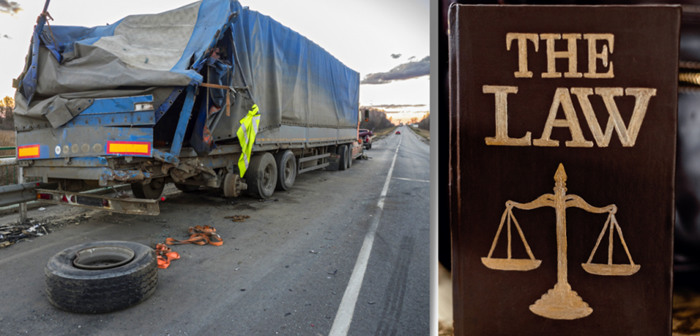Truck accidents are terrible, and they often cause serious injuries and a lot of damage to property. People who are hurt in truck accidents in Philadelphia may have a hard time getting compensation through the legal system. Anyone who has been in a truck accident needs to know the exact rules that apply to their case. This article will talk about some essential laws and principles that Philadelphia truck accident victims should know to protect their rights.
Understanding Philadelphia’s Truck Accident Regulations
There is a lot of traffic in Philadelphia because it is a busy city. Many commercial trucks carry goods all over the city. Because of its location, the city sees a lot of truck traffic on big highways like I-76 and I-95, which makes serious accidents more likely. Philadelphia truck accident attorneys are very important for accident victims because they help victims get through the complicated legal system and make sure they know their rights under state and federal laws.
Federal Trucking Regulations
There are strict rules for commercial trucking set by the Federal Motor Carrier Safety Administration (FMCSA). These rules are meant to make things safer and lower the chance of accidents involving big trucks. Here are some important federal government rules:
- Hours of Service Rules: Truck drivers can only drive continuously for a certain amount of time. By mandating rest breaks, these rules hope to stop accidents that happen because of tiredness. After eight hours of driving consecutively, drivers have to take a 30-minute break. In a 14-hour workday, drivers can’t drive more than 11 hours.
- Drug and Alcohol Testing: Commercial truck drivers have to go through regular drug and alcohol tests. This includes tests given before hiring, at random, and after an accident. By breaking these rules, the trucking business may be held legally responsible in a big way.
- Vehicle Maintenance Standards: Trucking companies must check and fix their vehicles on a regular basis to make sure they are safe to drive. Accidents can be very bad when brakes don’t work right, tires are worn out, or other mechanical parts break.
- Cargo Securement Rules: It’s important to properly secure cargo so that loads don’t move around and cause crashes. To keep people safe, federal rules say how to secure different kinds of goods.
These government rules help figure out who is at fault in truck accidents. If a truck driver or company breaks any of these rules, they may have to pay for the damage that happens.
Pennsylvania-Specific Trucking Laws
In addition to federal regulations, Pennsylvania has its own laws that guide how trucks can be used in the state. These rules are made to fit the needs of the area and protect everyone who uses the roads:
- Weight and Size Limits: To protect the state’s roads and bridges, Pennsylvania has strict rules about how much and how big commercial trucks can be. Trucks that are too heavy can do a lot of damage and make accidents more likely because they are harder to control.
- Commercial Driver’s License (CDL) Requirements: To get a Commercial Driver’s License (CDL), you must meet certain requirements in Pennsylvania. Drivers must pass written and practical tests to demonstrate their knowledge and skills. The state also checks CDL users’ driving records to make sure they follow safety rules.
- Annual Safety Inspections: All commercial vehicles that run in Pennsylvania must have safety checks every year. These checks make sure that safety standards are met, and they look at things like brakes, tires, lights, and other important parts.
Along with federal rules, these state-specific laws make Pennsylvania’s roads safer and hold trucking companies responsible for breaking the rules.
Modified Comparative Negligence in Pennsylvania
In Pennsylvania, figuring out who is at fault in a truck accident is done using a modified comparative negligence rule. This rule can have a big effect on how much money a victim gets:
- Victims can’t get any compensation if they are found to be 50% or more at fault.
- If the victim is less than 50% at fault, their compensation is lowered by the amount of fault they have.




